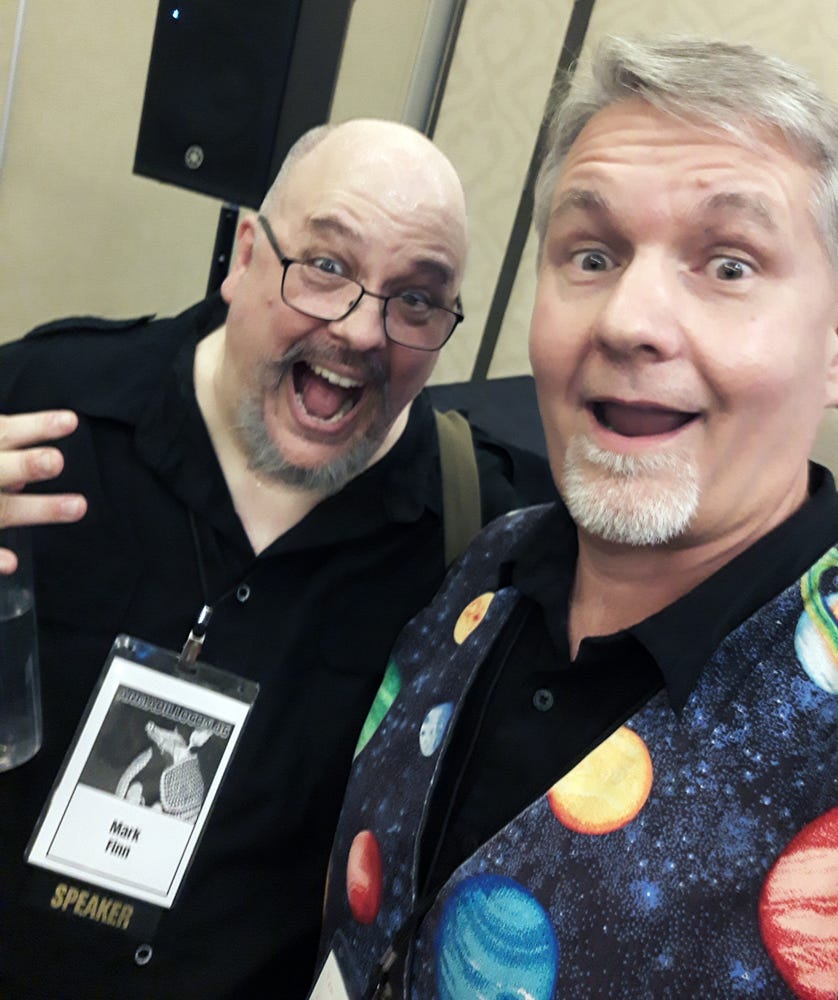I hope you good folks are following me over on Substack, because I'm writing some pretty cool stuff. My ongoing series, "Reading Playboy for the Articles," continues to be a fun and insightful glimps into the pop culture zeritgeist of decades past. Here are links to my most recent additions, in case you've missed them:
August 1977
Fonzie, kit cars of the 70s and A Bridge Too Far
September 1972
The Troubles, Semi-Tough and drugs galore
March 1967
Orson Welles, Sharon Tate and a Fox River bachelor pad monument to MCM excess
If you want to keep up with all of my various goings-on, I recommend subscribing to Gibberish on Substack. It's painless, I promise.
Now Playing: The Jim Cullum Jazz Band Riverwalk Live vol. 5: Hot Jazz for a Cool Yule
Chicken Ranch Central
Wednesday, December 18, 2024
Friday, November 08, 2024
Friday Night Videos
Mood.
Chicken Ranch Central
Chicken Ranch Central
Monday, November 04, 2024
A Moment of Tiki episode 73: Tony Canepa
Episode 73 of A Moment of Tiki: Tony Canepa, is now live on the interwebz. I invite you to read all about it on my Substack.
Now Playing: Les Baxter Ritual of the Savage
Chicken Ranch Central
Chicken Ranch Central
Wednesday, October 16, 2024
Reading Playboy for the articles: December 1965
Reading Playboy for the articles: December 1965 edition, featuring Al Capp, the infamous Red Ryder BB gun, Playboy's holiday shopping guide and so much more is now live on the interwebz. I invite you to read all about it on my Substack.
Now Playing: The Mamas & the Papas The Best of the Mamas & the Papas
Chicken Ranch Central
Chicken Ranch Central
Friday, October 11, 2024
Friday Night Videos
Sixpence None The Richer's not a band I keep up with much. Sure, I recognize their biggest songs but they've never intrigued me enough to dive deeper into their catalog. So why am I featuring them on Friday Night Videos? Because their new single, "Rosemary Hill," has an accompanying video that was filmed in and around New Braunfels. Seriously, the whole thing. I recognize every intersection, every hill, every Gruene Hall... well, that last one's a given, as there's only one Gruene Hall and it's five minutes from my house. So if you'd like a glimpse of where I live (generally speaking) this video will scratch that itch.
Chicken Ranch Central
Chicken Ranch Central
Monday, October 07, 2024
A Moment of Tiki episode 72: Pineapple Parlor
Episode 72 of A Moment of Tiki: Pineapple Parlor, is now live on the interwebz. I invite you to read all about it on my Substack.
Now Playing: Don Ralke Orchestra The Savage and the Sensuous
Chicken Ranch Central
Chicken Ranch Central
Monday, September 09, 2024
Armadillocon in the rear-view mirror: 2024 edition
 Armadillocon took place in Austin over the weekend. This is, for those unaware, an annual science fiction and fantasy convention that's been running for 46 years. This isn't a big cosplay-and-celebrity event like DragonCon or ComiCon you see on TV. It's a more intimate affair focused on authors and artists. It's a blast. I attended it for the first time way back in 1990 and hope to attend many more in the future.
My recap of the weekend, along with a goodly number of photos, may be found on my Substack. As traffic here to my blog has gradually declined over the years, I'm shifting more of my writing over to the Substack platform, which combines the blog concept with social media and a built-in newsletter, with the potential of reaching more readers. And as a writer, reaching more readers is the name of the game. I don't plan on wholly abandoning this space, but the main activity will happen over at the new digs.
Now Playing: The Kinks Live in London 1973-1977
Armadillocon took place in Austin over the weekend. This is, for those unaware, an annual science fiction and fantasy convention that's been running for 46 years. This isn't a big cosplay-and-celebrity event like DragonCon or ComiCon you see on TV. It's a more intimate affair focused on authors and artists. It's a blast. I attended it for the first time way back in 1990 and hope to attend many more in the future.
My recap of the weekend, along with a goodly number of photos, may be found on my Substack. As traffic here to my blog has gradually declined over the years, I'm shifting more of my writing over to the Substack platform, which combines the blog concept with social media and a built-in newsletter, with the potential of reaching more readers. And as a writer, reaching more readers is the name of the game. I don't plan on wholly abandoning this space, but the main activity will happen over at the new digs.
Now Playing: The Kinks Live in London 1973-1977
Chicken Ranch Central
Subscribe to:
Comments (Atom)





